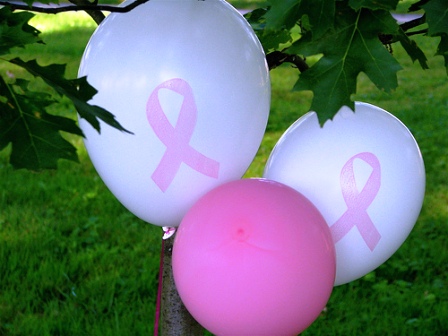
The medical term for cancer is malignant neoplasm and constitutes a large class of heterogeneous diseases where the group of cells in the body show uncontrolled growth, cells invade and destroy the adjacent cells and tissues. The malignant cells often metastasize and move to other parts of the body via the bloodstream or lymphatic stream. Such cancerous cells are called malignant tumors. The benign tumors are those which grow in an uncontrolled fashion, invade the cells only locally and can metastasize to distant body parts like brain, liver, bone, other organs and even to the regional lymph nodes.
Knowing cancer is curing cancer
It is important for every individual to have knowledge of disease including cancer. Knowledge is power and you will be able to avoid almost all kinds of environmental caused cancers by having proper knowledge about it and taking necessary steps to prevent it. You will also be able to guide others toward preventing cancer and provide valuable help to your adjacent locality.
Q. What is cancer?
A: Cancer can be termed as uncontrolled growth of the abnormally behaving cells and tissues of the body. The cells destroy the adjacent cells and hamper the normal functioning of the body.
Q. What are the common types of cancers?
A: Classification of cancers is done on the basis of the type of cells which the tumor resemble. These cells are presumed to be the origination points of the tumors. These cell types include:
1. Carcinoma – epithelial cells cause this type of cancer, some example include breast, lung, prostate, pancreas and colon cancer. These cancers are mostly found in the middle aged people.
2. Sarcoma – these cancerous cells arise out of the connective tissue i.e., from cartilage, bones, nerves and fat etc.
3. Leukemia and lymphoma – hematopoietic or blood forming cells give rise to this cancer. The cells leave the marrow and mature in the blood and lymph nodes.
4. Blastoma – this cancer originates in the immature precursor cells or in the embryonic tissues. This is the most common form of cancer in children.
5. Germ cell tumor – the cancer derives from the pluripotent cells, which are present in the ovary and testis.
Q. How is cancer caused?
A: The cancer can be caused by environmental as well as genetic factors. Environmental factors include obesity, high tobacco use, radiation, infection, poor diet, environmental pollutants, low physical activity and the genetic factors can be gene changes due to radiation, heredity gene composition or because of any other reason.
Q. How can cancer be prevented?
A: Some measures for preventing cancer can be avoiding tobacco use, increasing physical activity, exercising (which improves the endocrine functions and body immunity), avoiding coming in contact with harmful radiations and environmental pollutants, getting body check-ups regularly, using healthier products and maintaining ideal well-balanced diet.
Q. How is cancer treated?
A: Various therapies for treating cancer include medication, chemotherapy, radiation therapy and surgery. But cancer can only be easily treated if the symptoms of it are attended to in early stages. In about 70% of the cases, the symptoms go unnoticed and recovery becomes very difficult in later stages.
Q. Are there individual-specific treatments for different cancers?
A: Yes. The treatment of cancer varies with every individual and also depends of the stage of the cancer, the tolerance level of the individual and also on the type of cancer.
Q. How is cancer diagnosed?
A: Cancer can be diagnosed easily by cancer screening or by evaluating the signs and symptoms appearing on the human body. This diagnosis is not definitive and presence of cancer is only confirmed by pathologist(a physician specializing in diagnosis of diseases including cancer). Medical tests are then carried on people who are suspected to having cancer by using the X rays,CT scans, blood tests and endoscopy.
Many of us do not like the harsh facts. But to know the facts is essential for avoiding many diseases and for living a healthy life. Prevention is always better than cure and thorough knowledge when cajoled with efficient steps can help in reducing cancer in the common masses.




